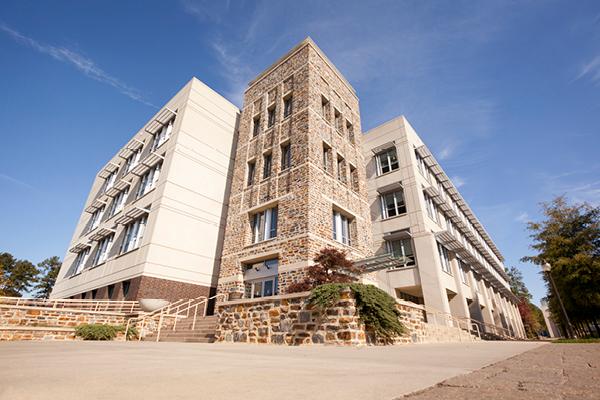
Graduate school is a unique time in a person’s life, filled with extraordinary opportunities and challenges. With this in mind, leaders in the School of Medicine’s Office of Biomedical Graduate Education have developed a new resource to provide incoming PhD students with social support as they begin this exciting new chapter. The Peer Mentor Network is a resource that connects 11 current PhD student volunteer mentors with the approximately 100 incoming PhD students who will be located in one of the School’s 17 departments in Fall 2021. The Peer Mentors directly engage with first-year students by co-leading small group discussions in the School’s BIOTRAIN 701 fall semester course, “Foundations in Professionalism for Biomedical Students,” and they will continue to provide mentoring throughout the first year.
“While the programs are very supportive of their individual cohorts, students often become so entrenched in their individual programs that they are less aware of their broader community,” said Beth Sullivan, PhD, associate dean for research training and a professor in the Department of Molecular Genetics and Microbiology. “Peer mentoring programs have been successful in Duke's undergraduate and medical student populations, so OBGE was keen to develop a centralized resource to equip senior PhD students with the skills to be effective mentors to first-year students who encounter many new, and often overwhelming, situations — classes, rotations, a new city, a new phase of life — when they arrive at Duke.”
Calla Telzrow, a fifth-year PhD student and administrative fellow in the Office of Biomedical Graduate Education, is working with Sullivan and OBGE Assistant Director of Trainee Development Kristin Russell to develop and implement the network. The peer mentors received leadership training in July 2021, drawn from the Leadership and Management in Action Program (L-MAP), a curriculum created at Washington University in St. Louis. The training is designed to introduce bioscience graduate students to the interpersonal and psychological foundations of leading teams and managing people.
“The curriculum is grounded in leadership and team dynamics that graduate students encounter in the research environment. It helps students to develop their own leadership and management styles and emphasizes that students can be leaders by influence even though they may lack a formal leadership title,” said Sullivan.
“As a graduate student myself, I am confident that an established peer mentoring program will improve the transition to graduate school, as well as the overall graduate student experience, for all Duke graduate students in the School of Medicine,” said Telzrow. “I am so excited to learn how we can continue to support and empower our students through this peer mentoring network.”
Meet each of the inaugural peer mentors below:
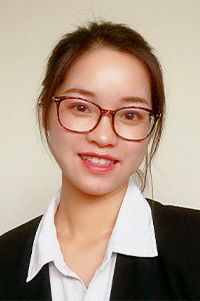
Evangeline (Chunjing) Bao
Hometown: Ningbo, China
Department/Program: Pathology/CMB
Advisor: Soman Abraham, PhD
What are your career interests and goals?
My career interests include delivering basic science to the public, as well as bridging the research and commercial sides of the business as a medical affair liaison. My career goals: improve my communication and leadership skills, increase professional knowledge.
Why did you decide to join the Peer Mentor Network?
I enjoy being a mentor and witnessing new students grow and thrive. Also, it’s a great opportunity to develop my mentoring skills, as well as communication and interpersonal skills.
In what ways do you hope to help incoming graduate students?
I will help them identify their research interests and goals. I will make myself available to them and reach out to them actively to provide support and encouragement and share my experiences if necessary.
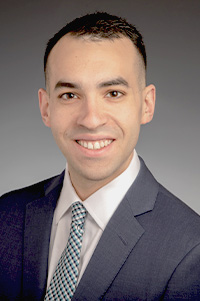
William (Bill) Butler
Hometown: Doylestown, PA
Department/Program: Pathology/Pathology PhD Program
Advisor: Jiaoti Huang, MD, PhD
What are your career interests and goals?
My long-term career goal is a full-time faculty position at an institution that allows me to balance both research and teaching. I believe the combination of mentoring research students and classroom-style teaching challenges you to approach how you work with students having a wider variety of interests/goals. I enjoy working with a diverse range of students, so it is a good fit for me.
Why did you decide to join the Peer Mentor Network?
The peer mentoring network is being established to help transition first-year students to graduate school, which I feel is excellent for not only increasing student retention but also setting up students to succeed from the beginning. It is often common for later-stage graduate students to think back on how they would have done things differently, and many times having proper mentorship in place would have helped them. I joined the Peer Mentor Network so that I can help students be successful early on and do my part in helping to improve biomedical graduate education.
In what ways do you hope to help incoming graduate students?
For any students I am assigned to mentor, I want to first take the time to learn about their individual goals/interests and what they hope to get out of their programs. It is now well accepted that most students entering biomedical graduate programs do not stay in academia, and I plan on tailoring how I mentor students to their own needs/goals. I am also a firm believer in work-life balance and maintaining health and wellness while in graduate school. Because of this, I plan on coaching my mentees on how to remain productive but still take care of themselves outside of their work so that they can achieve success while staying healthy and happy!
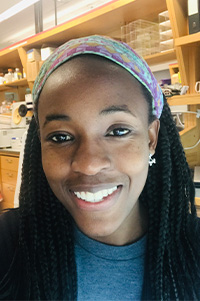
Jovita Byemerwa
Hometown: Iringa, Tanzania
Department/Program: Pharmacology and Cancer Biology/Cell and Molecular Biology
Advisor: Donald McDonnell, PhD
What are your career interests and goals?
I am interested in becoming an independent researcher working on women’s cancers (breast and gynecologic cancers). My goal is to also work at the intersection of basic science, clinical research, and public health to address local and global cancer disparities.
Why did you decide to join the Peer Mentor Network?
I decided to join the Peer Mentor Network to help first-year students navigate the challenges of graduate school and develop skills that will enable them to adjust well to Duke and the world of academia. Mentorship is extremely important in the success of a graduate career and beyond, and I want to share my experiences with other students.
In what ways do you hope to help incoming graduate students?
I hope to help incoming graduate students identify potential rotation labs, identify good labs with strong mentorship to eventually join, and advise them on how to balance classes and lab work in their first two years of graduate school. Additionally, I hope to help students identify suitable opportunities for career development, such as the various certificate programs Duke offers (e.g., certificate in global health, certificate in college teaching) and other student groups on campus that focus on wellness and outreach.
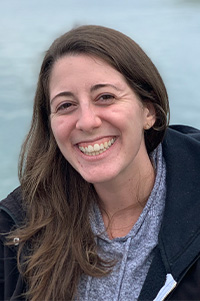
Arielle Fogel
Hometown: Philadelphia, PA
Department/Program: Evolutionary Anthropology/Genetics and Genomics
Advisor: Jenny Tung, PhD
What are your career interests and goals?
I am fascinated by the evolution and diversity of social behavior across animal species and pursued research using evolutionary frameworks and cutting-edge genomic tools to understand two broad questions: How do evolutionary processes influence social behavior, and reciprocally, how does social behavior influence evolutionary processes? My goal is to attain a faculty position at a research university where I can conduct interdisciplinary research at the intersection between animal behavior, evolutionary biology, and genetics and support the learning, development, and training of students.
Why did you decide to join the Peer Mentor Network?
Throughout my research career thus far, I have benefited immensely from peers who have generously given their time and energy to support me. Because of how much I have gained and continue to gain from my formal and informal peer mentors, I feel a strong obligation to do the same for other students. I have also previously served in a variety of peer mentorship roles and have found my mentoring experiences to be rewarding as I learn from my mentees and watch them succeed.
In what ways do you hope to help incoming graduate students?
Broadly, as a mentor, I feel it is my responsibility to be compassionate, sensitive, and non-judgmental towards my mentees, fostering a safe and trusting relationship so that they feel that they can always come to me as a resource. I also hope to provide my mentees with positivity, problem solving, and empowerment. Importantly, different students will likely have specific concerns and needs, so I also hope to tailor my support to each specific student. Being an exceptional mentor is a central tenet of my career goals, and I am committed to continually striving to improve my mentorship.
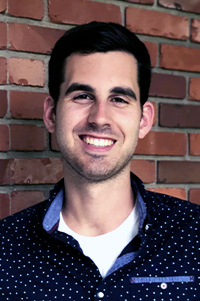
Josh Ginzel
Hometown: Peoria, IL
Department/Program: Cell Biology/Developmental and Stem Cell Biology
Advisor: Joshua Snyder, PhD
What are your career interests and goals?
In a broad sense, my career interests lie in using animal models to understand the early events that lead to a lethal cancer. While I am not sure yet which path my career will take, I am continuing to develop the skills and connections I need to find success at Duke and beyond.
Why did you decide to join the Peer Mentor Network?
As a first-year student at Duke I had a few important peer mentor relationships that played a key role in making the myriad difficult decisions I faced. The opportunity to take an active role in the Peer Mentor Network allows me to give back that same guidance I valued so much to incoming first-year students.
In what ways do you hope to help incoming graduate students?
I hope to help incoming students shape their graduate school experience to be as rewarding as possible. One of the most important aspects of graduate school is establishing a path to your own independence, and as a mentor I strive to nurture the confidence and knowledge the students will need to become successful and well-rounded scientists.
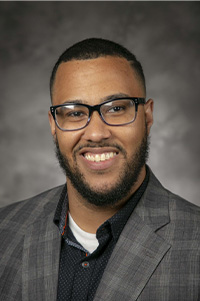
Liam Lewis
Hometown: Luray, VA
Department/Program: Pharmacology & Cancer Biology/Cell and Molecular Biology
Advisor: Romain Cartoni, PhD
What are your career interests and goals?
My career interests are targeted towards understanding how policy decisions shape the research and medicine landscape. Some of my long-term goals include pursuing opportunities in government policy specifically involved in the research and treatment of neurodegenerative disorders.
Why did you decide to join the Peer Mentor Network?
Mentoring was a huge part of me pursuing a PhD and is imperative to be able to navigate the graduate school landscape. I had a cohort of mentors that supported me and provided me with valuable advice throughout my time as an undergraduate, post-baccalaureate, prospective, and current graduate student.
In what ways do you hope to help incoming graduate students?
Graduate school can be overwhelming at first. I hope to help incoming students in identifying potential thesis research labs and mentors in and out of the laboratory environment. There are also a host of professional development opportunities for students to be mindful of.
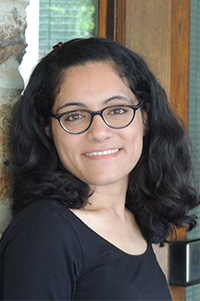
 Akanksha Manghrani
Akanksha Manghrani
Hometown: Ajmer, India
Department/Program: Biochemistry
Advisor: Hashim Al-Hashimi, PhD
What are your career interests and goals?
Currently, at the Al-Hashimi laboratory I utilize nuclear magnetic resonance spectroscopy and chemical probing to study DNA and RNA structure and dynamics. I enjoy harnessing in vitro knowledge about biological systems to predict the behavior of biomolecules in cells. I am also very passionate about science pedagogy and aim to pursue a career in science teaching.
Why did you decide to join the Peer Mentor Network?
I am glad and fortunate to be a part of the peer mentoring network, where we can take time to appreciate that graduate education is a learning process and a collaborative effort. I strongly believe that we are all better and stronger together and can greatly enhance each other’s graduate education experience.
In what ways do you hope to help incoming graduate students?
As a mentor, I aspire to build authentic relationships with the incoming graduate students and provide a friendly space for honest communication to aid in their holistic growth. I aim to foster a growth- and learning- based approach towards graduate education. I also hope to encourage them to build a network of diverse mentors who can cater to the variety of support and feedback they will need during their graduate education.
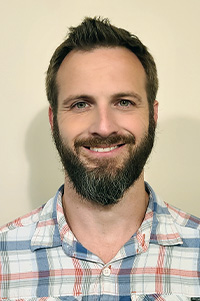
Matt Oliver
Hometown: Toccoa, GA
Department/Program: Cell Biology
Advisor: Nicole Calakos, MD, PhD
What are your career interests and goals?
My goals are to develop the research skills necessary to be a high-value member of a research organization/company.
Why did you decide to join the Peer Mentor Network?
I have been doing full time research for around nine years in a variety of labs and am starting my fifth year of graduate research. I’ve seen and experienced a lot over that time. Giving some of my time to the incoming biomedical graduate students seemed like the right thing to do.
In what ways do you hope to help incoming graduate students?
Graduate school can feel like being thrown into the middle of the ocean when you don’t know how to swim and being told to “figure it out.” The biggest difference is every time your head starts to fall below the surface, you realize there is a sandbar right beneath your feet. Don’t panic, and stay calm. Everything is much easier when you realize there is a lot of support you can draw from.
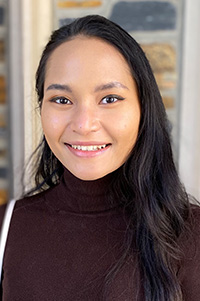
Khairunnisa Mentari Semesta
Hometown: Yogyakarta, Indonesia
Department/Program: Pharmacology and Cancer Biology/Pharmacology
Advisor: Nikoleta Tsvetanova, PhD
What are your career interests and goals?
Currently, I am really interested in the intersection of science and policymaking. My professional goal is to combine my technical background in the biomedical sciences and my interest in policy affairs by working in patent law or policy analyst positions.
Why did you decide to join the Peer Mentor Network?
In my first year, I often felt that I did not have adequate information and was easily overwhelmed. I would like to ensure first-year students enter an environment where they can be resilient and experience less burnout. To achieve this, I see an opportunity in the peer mentor program to build a community where every first-year student feels like they belong and can thrive.
In what ways do you hope to help incoming graduate students?
My favorite thing about mentorship is letting people know about exciting opportunities that will help them realize their goals and encouraging students to pursue them. However, I acknowledge that graduate students come from various walks of life and may have different goals than mine. As such, I also like helping them identify other mentors who will also contribute to their success.
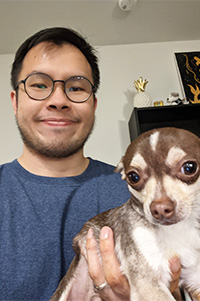
Chin Yee Tan
Hometown: Simei, Singapore
Department/Program: Molecular Genetics and Microbiology
Advisor: Neil Surana, MD, PhD
What are your career interests and goals?
I am generally interested in solving current and future health problems of tomorrow with science. This likely entails me entering a career in academia.
Why did you decide to join the Peer Mentor Network?
I want to learn to mentor better, return the scientific community a huge debt in mentoring me, and nurture the next generation of scientists. I believe joining the Peer Mentor Network is a great way to start.
In what ways do you hope to help incoming graduate students?
Graduate school was and still is challenging for me. Despite somewhat successfully navigating the past four years, I do not think I have figured out a “hack” to impart to future students I mentor. Rather, I hope to use my experiences to motivate, challenge, and provide empathy to those who are about to embark a similar path.
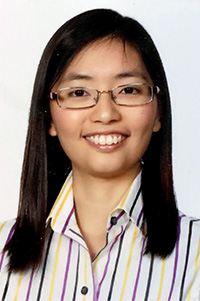
Christabel Tan
Hometown: Singapore
Department/Program: Cell Biology/Cell and Molecular Biology
Advisor: Cagla Eroglu, PhD
What are your career interests and goals?
Scientifically, I am very interested in understanding the molecular mechanisms behind how the brain develops, especially how different cell types cooperatively work together to form a functional circuit. I also ventured into science policy during my graduate education and am currently exploring ways to weave both interests into a career.
Why did you decide to join the Peer Mentor Network?
I was nominated by my department/program. I believe that mentoring is a vital part of the graduate school experience. I benefited from senior graduate students who invested time and energy in me when I first started. This is my way of giving back to the community that has been a great resource and support.
In what ways do you hope to help incoming graduate students?
The best part of graduate school is that you get to tailor your experience to your goals and interests, but it is very easy to get swept up in all the options. I hope to be a sounding board for my mentees and advocate for them so that they have a good head start in what will be an excellent scientific career.